Overview
The significance of integration in title software is underscored by its capacity to enhance efficiency, accuracy, and collaboration among real estate professionals. This is achieved through features such as:
- Automated data extraction
- Real-time updates
- Customizable workflows
Furthermore, integrated systems are shown to:
- Reduce human error
- Ensure compliance
- Improve the user experience
Consequently, this integration drives operational excellence and facilitates better decision-making across the industry.
Introduction
The integration of title software stands as a pivotal force in transforming the real estate industry, facilitating seamless data exchange and significantly enhancing operational efficiency. By delving into the key benefits of this integration, professionals can discover how advanced technologies—such as machine learning and cloud-based solutions—streamline processes and elevate decision-making capabilities. However, as the landscape continues to evolve, a pressing challenge emerges: how can organizations effectively leverage these integrated systems to not only boost productivity but also cultivate collaboration and ensure compliance in an increasingly complex environment?
Parse AI: Streamline Title Research with Advanced Machine Learning Integration
Parse AI utilizes advanced machine learning algorithms to meticulously analyze and extract pertinent data from extensive document collections. This innovative technology significantly reduces the time required for ownership research, allowing professionals to focus on more strategic tasks. By automating the data extraction process, Parse AI mitigates human error and enhances the accuracy of report generation. Consequently, it has become an indispensable tool for real estate professionals striving for operational efficiency.
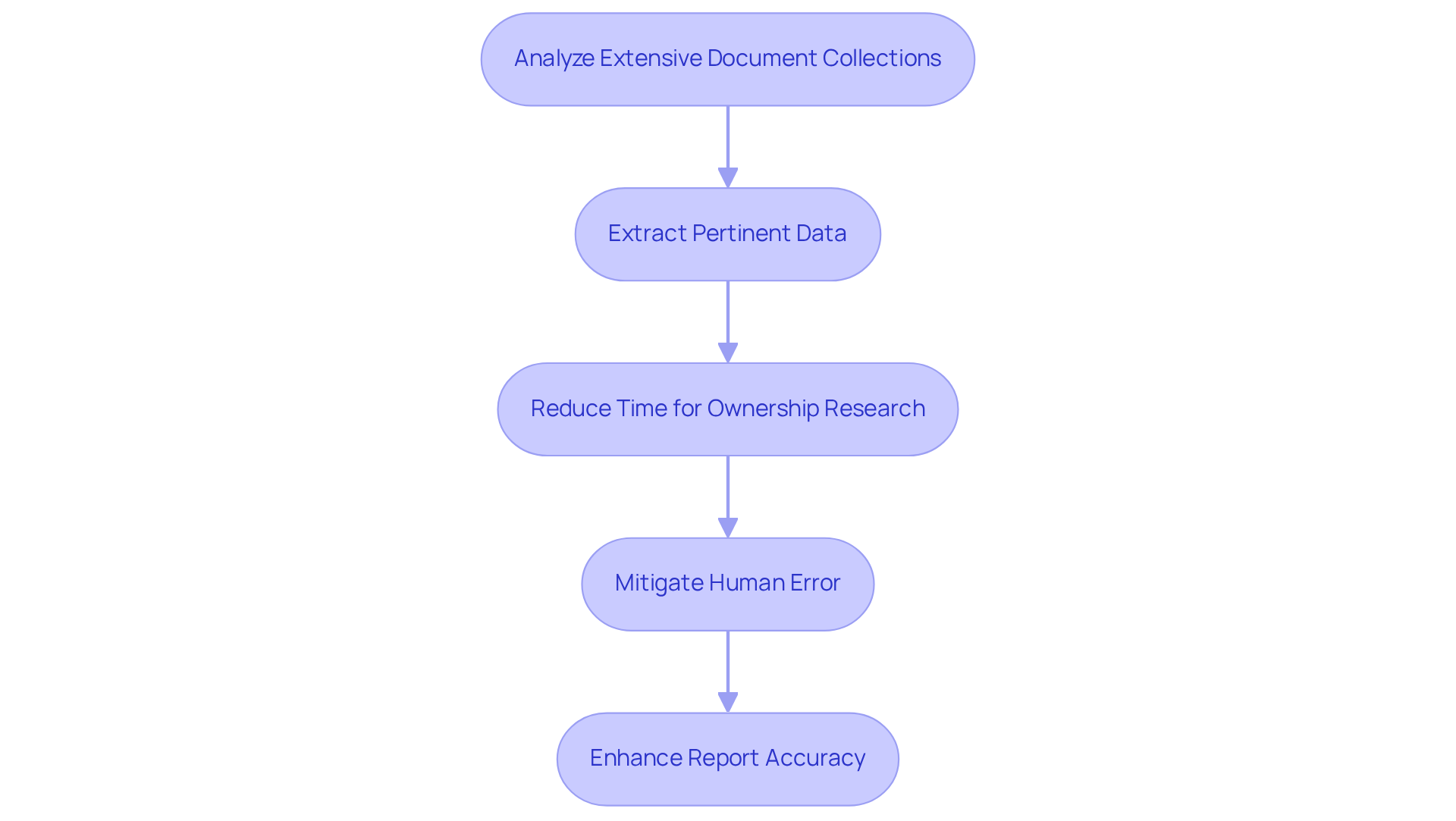
Enhanced Data Sharing: Improve Collaboration Between Title Software and Real Estate Platforms
Incorporating document applications with real estate platforms underscores the importance of integration in title software to enable smooth data exchange among agents, lenders, and title firms. This real-time access to information minimizes miscommunication, ensuring that all parties are aligned and can make quicker, more informed decisions. Enhanced data sharing not only streamlines transaction tracking but also significantly boosts customer service.
For instance, AI chatbots can enhance lead generation in real estate by 33%, demonstrating the tangible benefits of integration. As the sector develops, the incorporation of designation applications with property platforms is becoming progressively essential. According to the 2024 New Delta Media Survey, 75% of leading U.S. brokerages have adopted AI technologies, highlighting a growing trend towards advanced technologies that support collaborative efforts.
Furthermore, industry experts emphasize that integrated systems can lead to better outcomes, fostering a culture of collaboration that enhances overall productivity. Moreover, the projected growth of the AI real estate market, expected to reach USD 41.5 billion by 2033, underscores the importance of integration in title software in driving efficiency and effectiveness for all stakeholders involved.
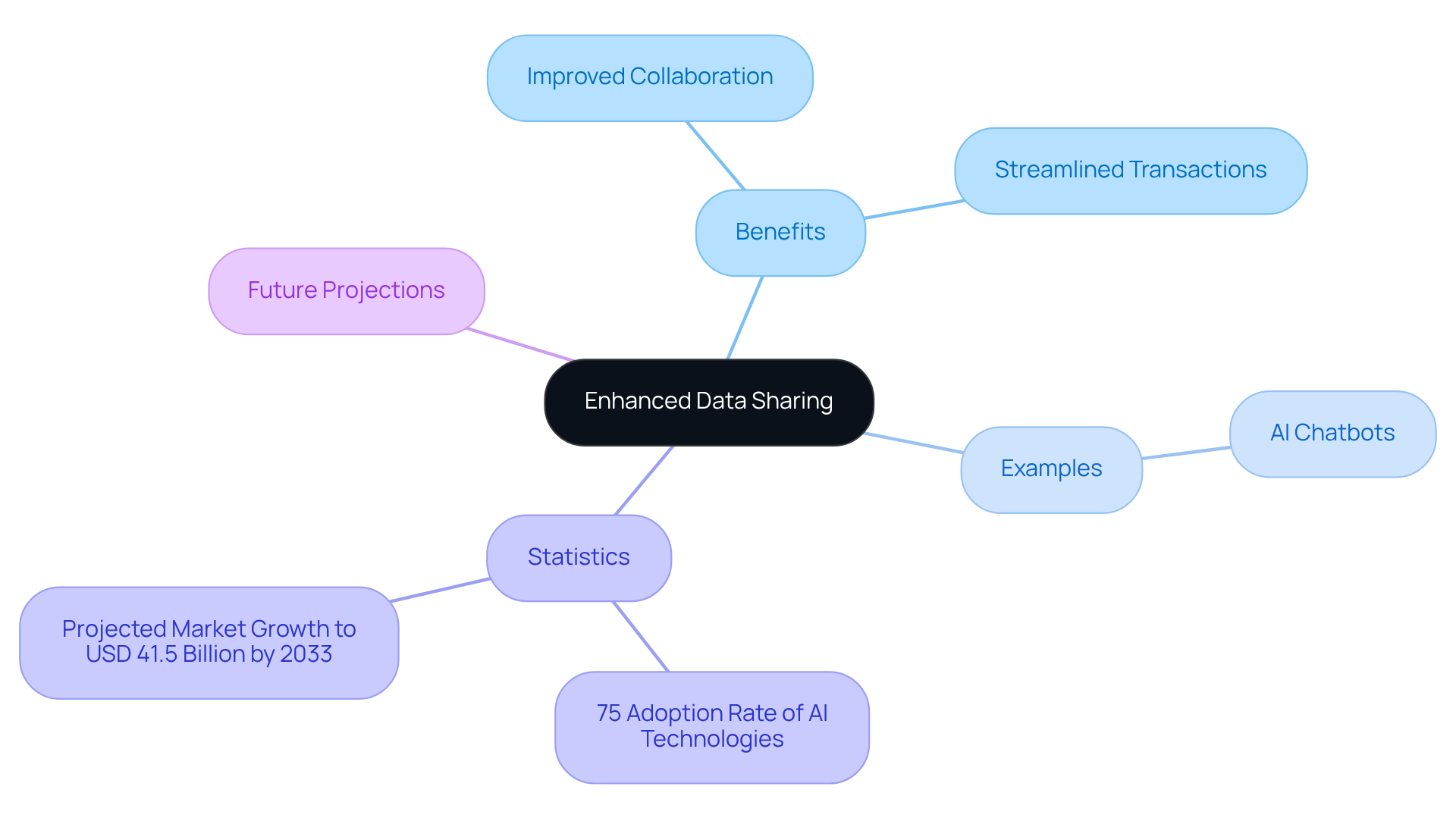
User-Friendly Interfaces: Facilitate Integration and Enhance User Experience in Title Software
User-friendly interfaces are essential to understanding the importance of integration in title software within the industry. A well-designed interface not only simplifies navigation but also significantly reduces the learning curve for new users. By prioritizing user experience, the application allows professionals to swiftly access essential tools and information, resulting in enhanced productivity and overall satisfaction.
Attributes like customizable dashboards and intuitive workflows enhance usability, enabling researchers to concentrate on their primary tasks without unnecessary distractions. Furthermore, studies indicate that a strategically designed user interface can boost conversion rates by up to 200%, underscoring the importance of investing in user-centric design.
As professionals in the field increasingly depend on technology, the importance of integration in title software and seamless applications that provide an outstanding user experience will only rise.
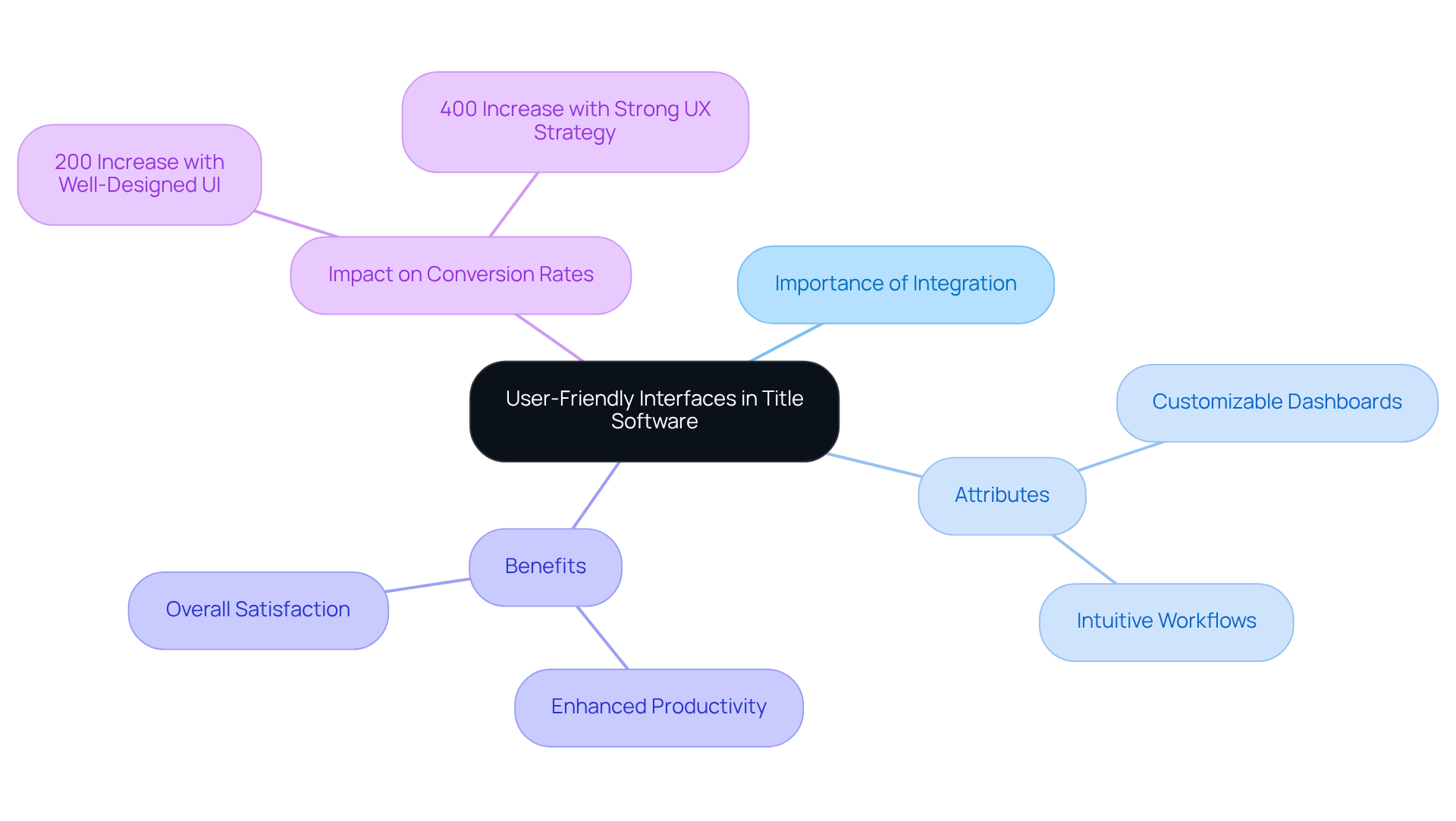
Real-Time Updates: Ensure Accurate Property Records Through Integrated Title Software
The importance of integration in title software is highlighted by the way integrated naming applications deliver real-time updates on property records, enabling all stakeholders to access the most current information. This functionality is crucial for mitigating discrepancies and avoiding legal complications that can arise from outdated records.
By automating updates, firms can sustain accurate databases, underscoring the importance of integration in title software, which not only enhances compliance but also fosters trust with clients and partners. The significance of accurate property records is highlighted by the reality that discrepancies caused by outdated information can result in substantial financial losses and legal disputes.
Industry experts have observed that inaccuracies in property records can lead to costly title claims, emphasizing the importance of integration in title software solutions. Title firms have reported that the importance of integration in title software considerably reduces the time spent on research and verification, enabling them to concentrate on delivering exceptional service.
By leveraging technology, these enterprises can ensure that their records are not only precise but also reflective of the most recent changes in property ownership, thereby improving operational efficiency and client satisfaction.
As Gopi Polavarapu, Chief Solutions Officer at Kore.ai, stated, "Embracing AI doesn’t mean you’re surrendering to a machine but rather leveraging technology to streamline tactical tasks, enabling teams to focus on higher-level work to support global operations and growth."
This perspective aligns with the current trend of incorporating AI into research, emphasizing the balance between innovation and the necessity for accurate, current information.
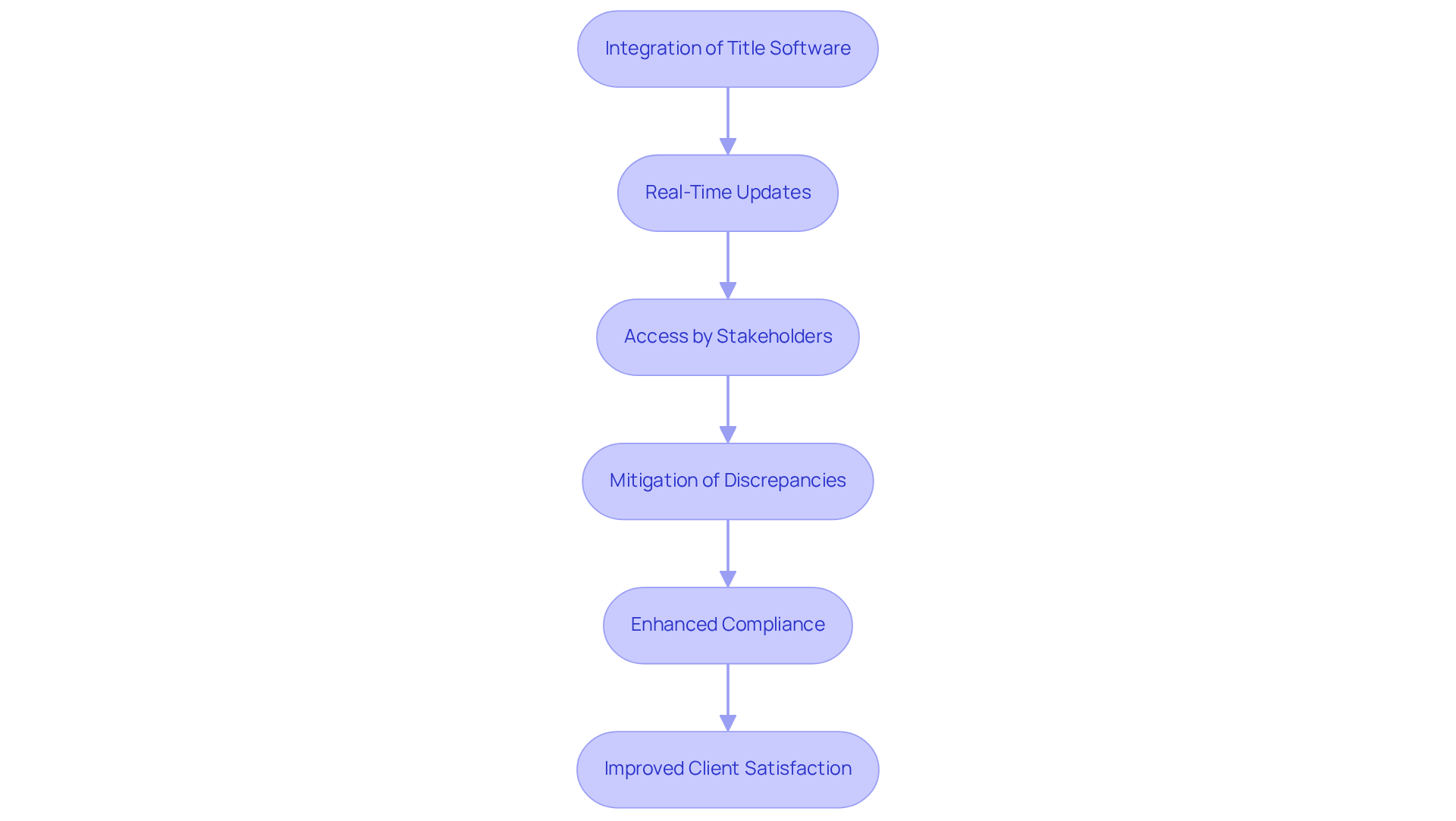
Compliance Features: Safeguard Legal Adherence Through Integrated Title Software Solutions
Firms aiming to maintain legal compliance recognize the importance of integration in title software, as combined solutions for property titles are essential. These systems incorporate:
- Automated checks for regulatory updates
- Customizable compliance workflows
- Comprehensive audit trails that meticulously document all transactions
By leveraging these advanced tools, firms can significantly mitigate the risk of non-compliance, ensuring their operations align with industry standards. Organizations that implement compliance management tools frequently report enhanced accuracy in their compliance processes, which leads to improved operational efficiency and reduced costs.
Furthermore, legal experts underscore that a proactive approach to compliance not only protects against potential legal issues but also cultivates a culture of accountability within the organization. Consequently, real estate firms can confidently navigate the complexities of regulatory requirements, ultimately bolstering their reputation and trustworthiness in the market.
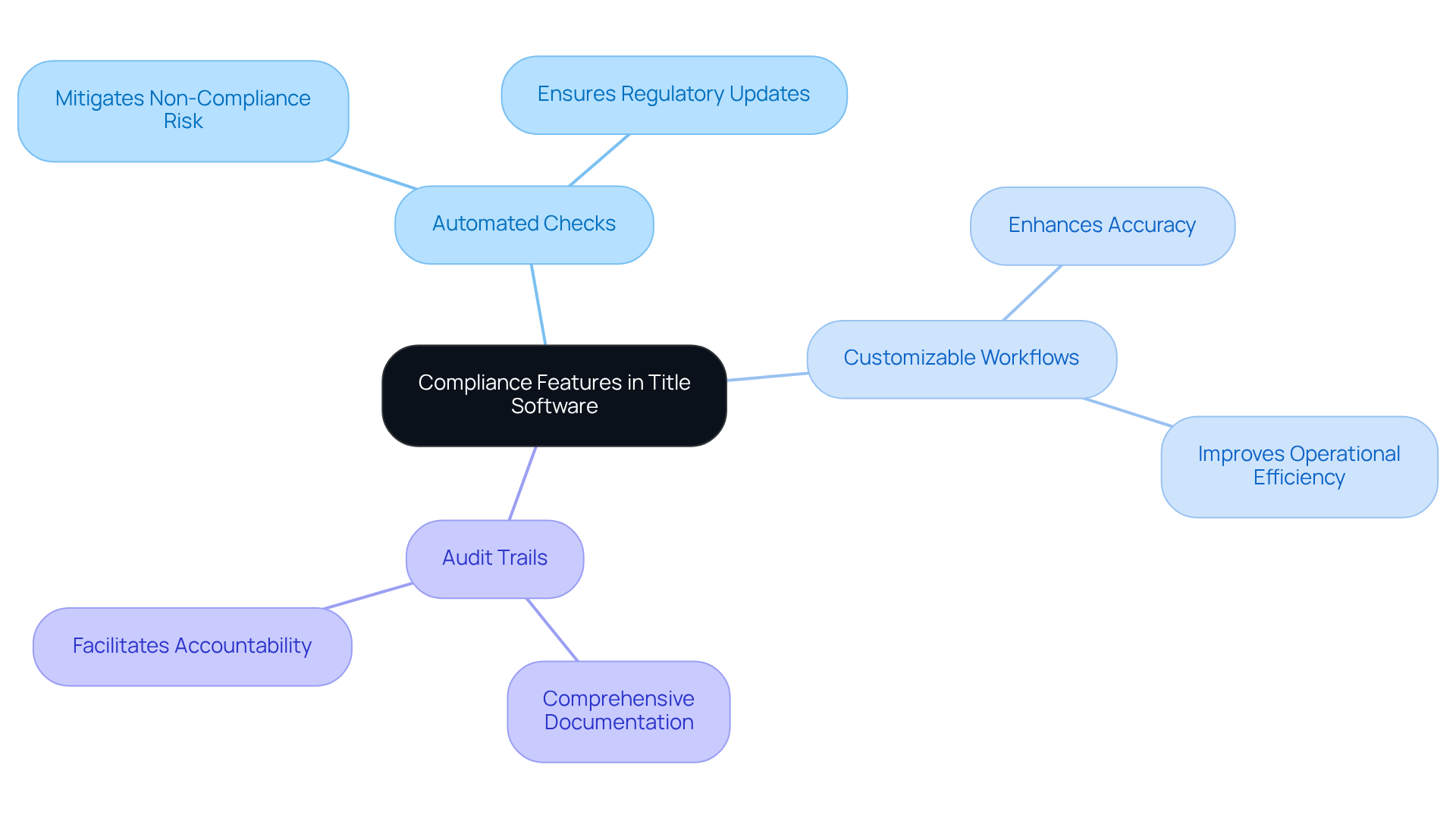
Customizable Workflows: Tailor Title Software Integration to Meet Unique Business Requirements
Flexible workflows in application integration are pivotal for organizations aiming to adapt their processes to meet specific business needs. This adaptability empowers professionals to design workflows that align seamlessly with their operational strategies, significantly enhancing efficiency and mitigating bottlenecks. By customizing applications to fit their unique requirements, companies in the title industry can boost productivity, ensuring that teams operate in the most effective manner possible.
Statistics demonstrate that organizations leveraging tailored software solutions experience average productivity increases of 25-30% in automated processes, with 91% reporting enhanced visibility into operations post-automation. For instance, Parse AI's platform allows researchers to complete abstracts and reports more rapidly and accurately, illustrating how customized workflows can lead to substantial time savings and significant cost reductions compared to traditional methods.
As Jorge Martinez articulates, 'Workflow automation is becoming a critical tool for businesses looking to improve efficiency, reduce manual tasks, and scale operations.' This underscores the importance of integration in title software for integrating bespoke solutions in document research to foster operational excellence.
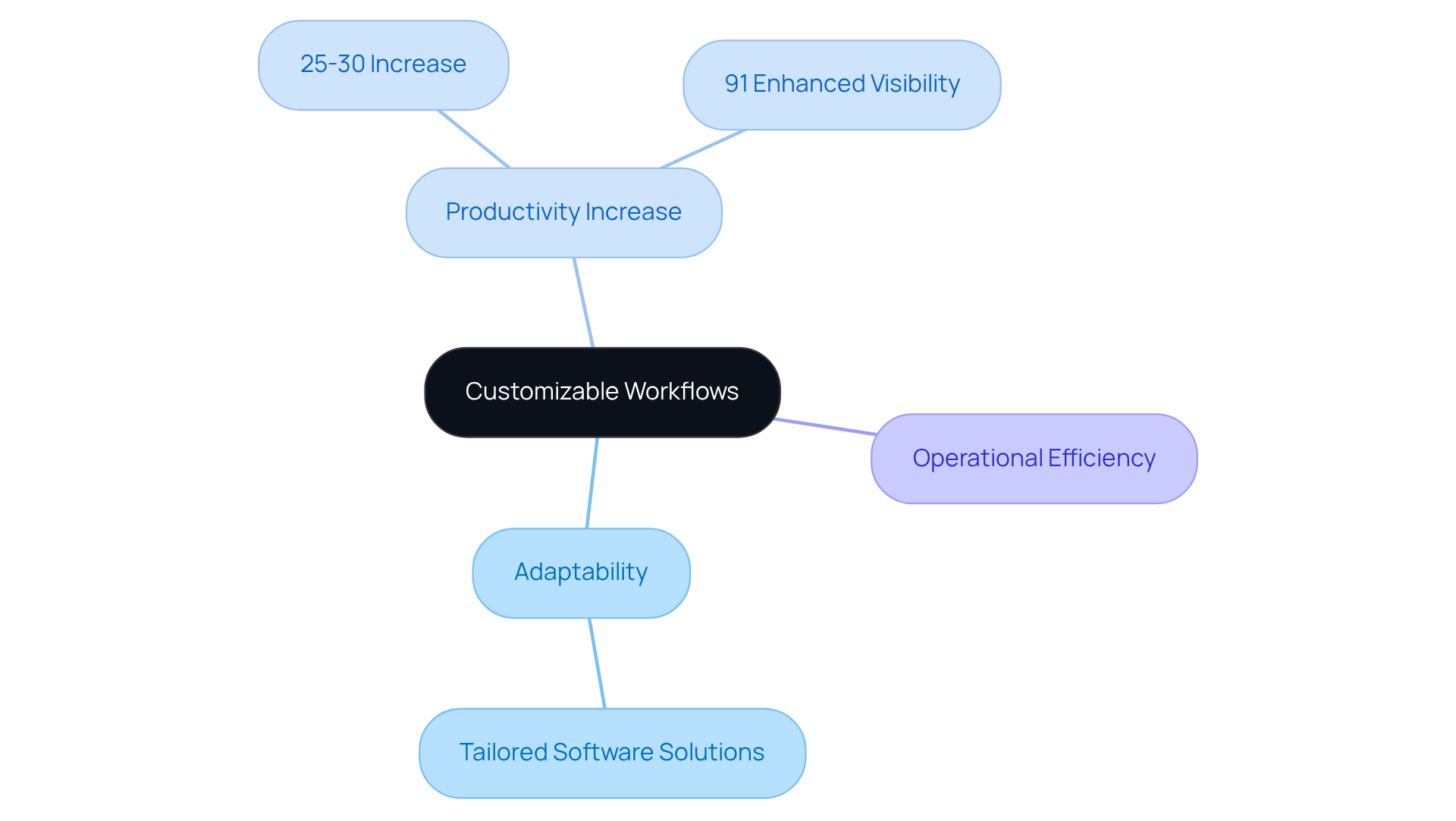
Analytics and Reporting: Leverage Data Insights for Better Decision-Making in Title Software
The analytics and reporting capabilities within the application provide invaluable insights that can significantly influence strategic decision-making. By thoroughly analyzing data trends, firms are empowered to pinpoint areas for improvement, optimize their operations, and elevate customer service. Furthermore, customizable reporting tools enable professionals to generate reports that underscore key performance metrics, facilitating data-driven decisions that are closely aligned with their business objectives.
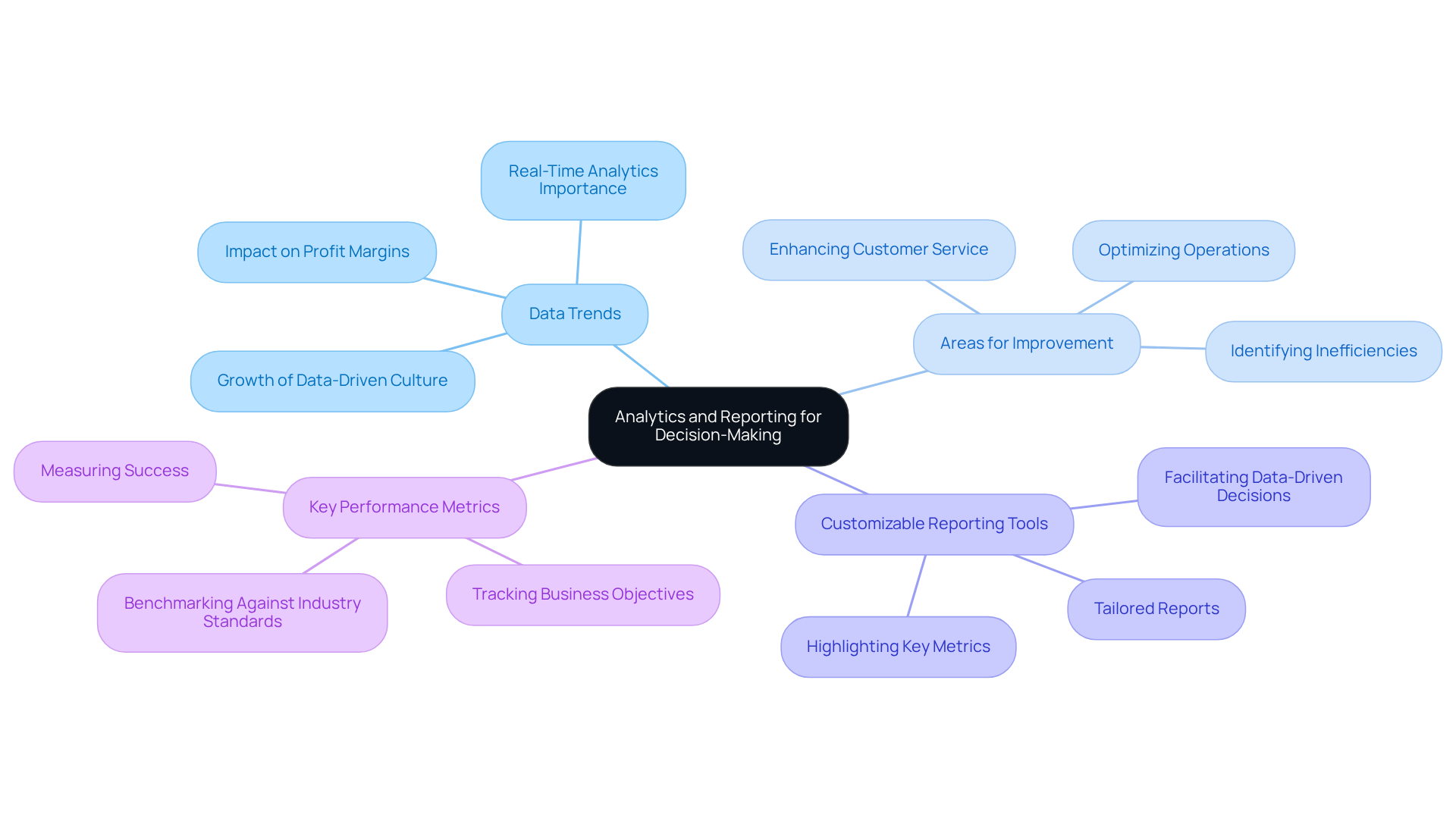
Security Features: Protect Sensitive Data Through Robust Title Software Integration
Strong security measures in integrated systems are essential for safeguarding sensitive information from breaches and unauthorized access. Key features such as:
- Encryption
- Multi-factor authentication
- Secure data storage solutions
play a critical role in this process. By implementing robust security measures, firms can effectively ensure that client information remains confidential and secure. Consequently, this not only fosters trust but also guarantees compliance with industry regulations.
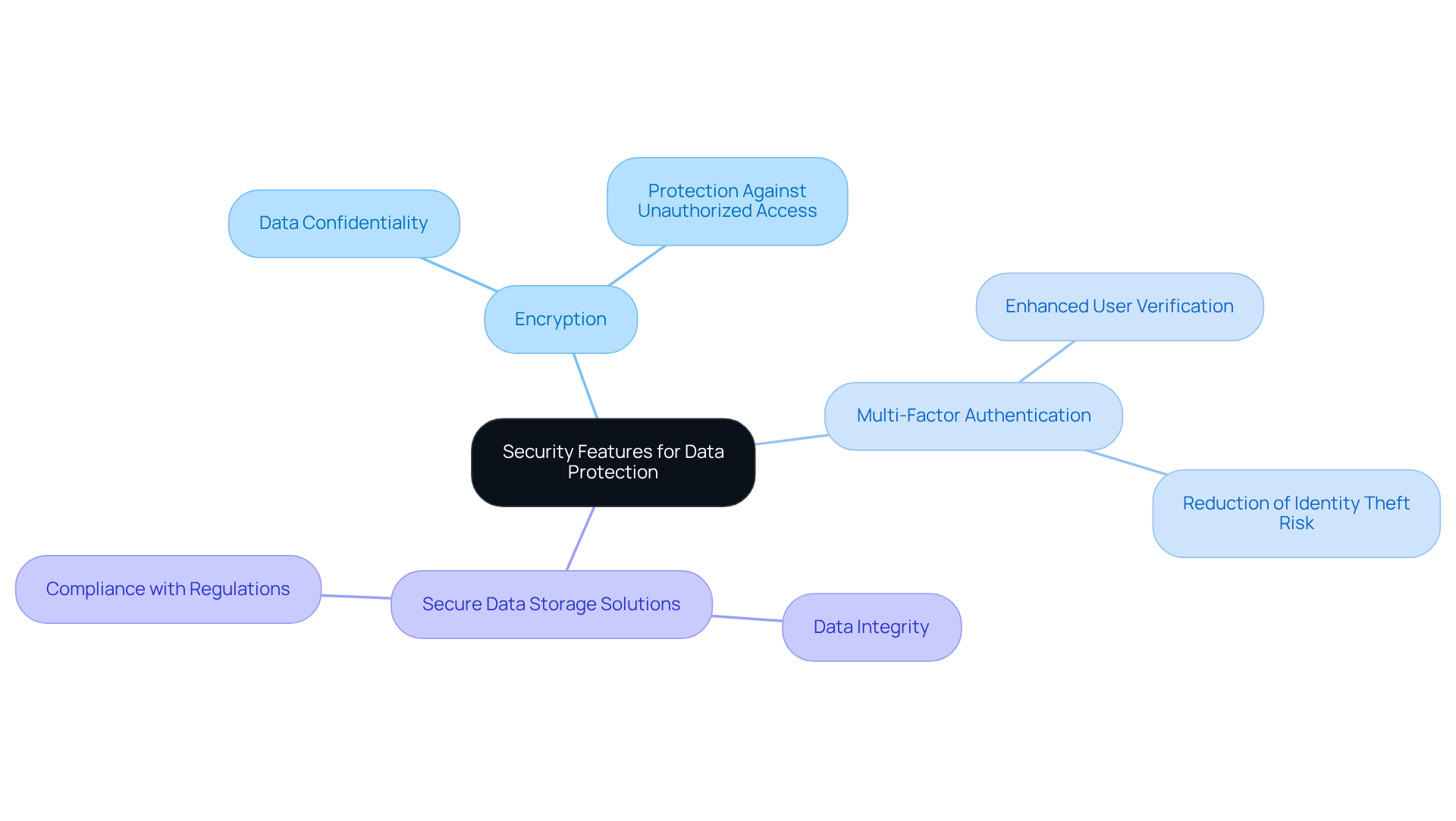
Cloud-Based Solutions: Enhance Scalability and Accessibility in Title Software Integration
Cloud-based solutions in document integration provide enhanced scalability and accessibility, allowing professionals to access their systems from virtually any location at any time. This flexibility proves particularly advantageous in remote work environments, fostering improved collaboration among teams. Furthermore, cloud solutions can seamlessly scale to accommodate growing data requirements, ensuring businesses can adapt to shifting market demands without incurring significant infrastructure costs.
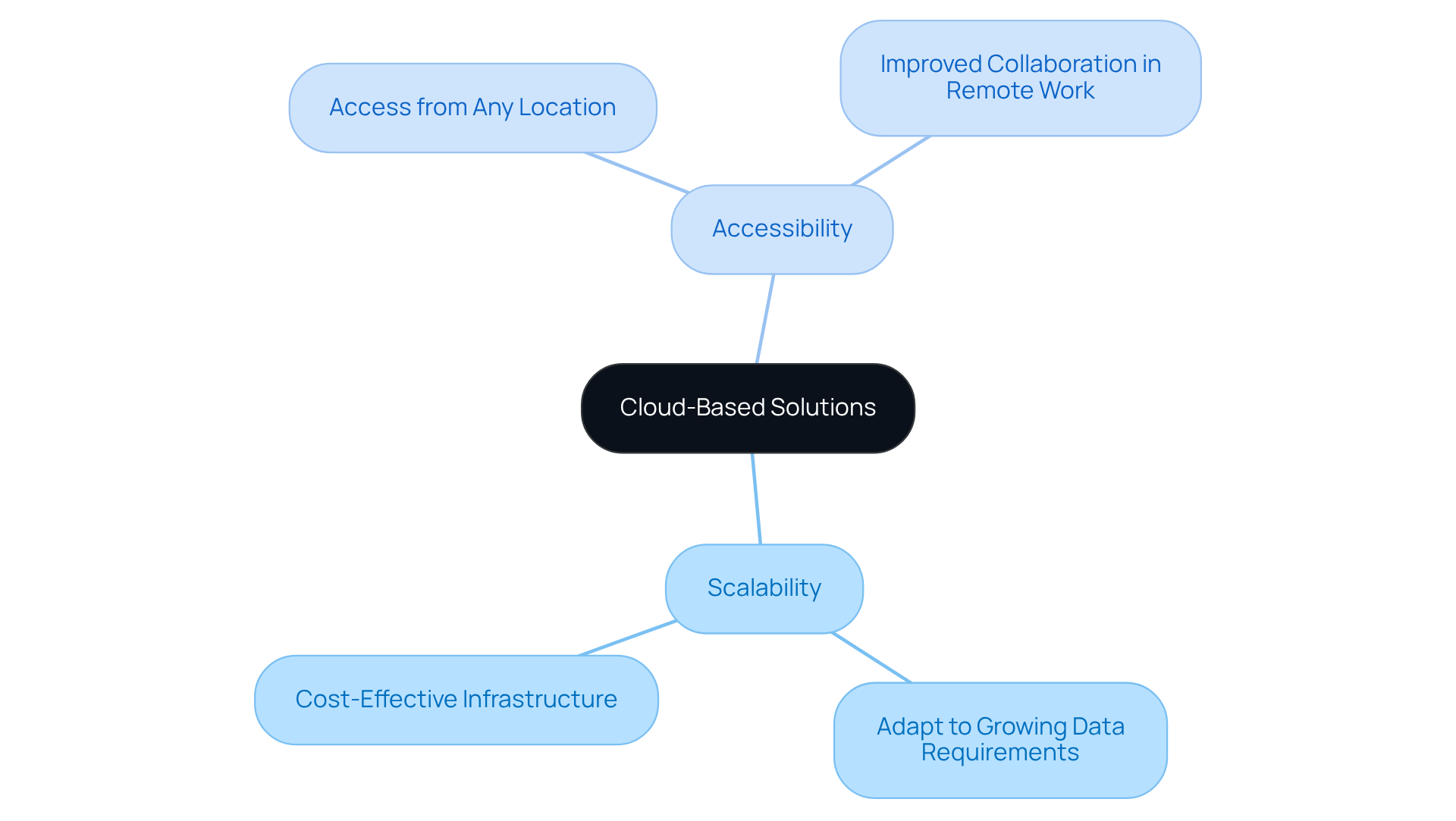
Training and Support: Empower Users to Maximize the Benefits of Integrated Title Software
Investing in comprehensive education and assistance is essential for empowering users to fully leverage the importance of integration in title software. Title companies must implement development programs that cover all software aspects, from fundamental functionalities to advanced features.
Research indicates that organizations with robust development programs experience a remarkable 218% increase in income per employee, underscoring the financial benefits of effective training. Furthermore, 59% of employees believe that development directly enhances their overall job performance, reinforcing the necessity for investment in development initiatives.
Ongoing support, which includes access to help desks and user communities, allows users to resolve issues promptly, thereby enhancing their productivity and satisfaction. Additionally, 93% of employees express a desire for development that is straightforward to complete, while 91% seek personalized instruction relevant to their roles, highlighting the demand for accessible and tailored learning solutions.
By prioritizing these initiatives, title companies can significantly enhance software utilization, highlighting the importance of integration in title software, and cultivate a more engaged workforce, ultimately leading to improved performance and reduced turnover rates.
As noted by a training professional, 'Effective training not only enhances user satisfaction but also drives overall organizational success.
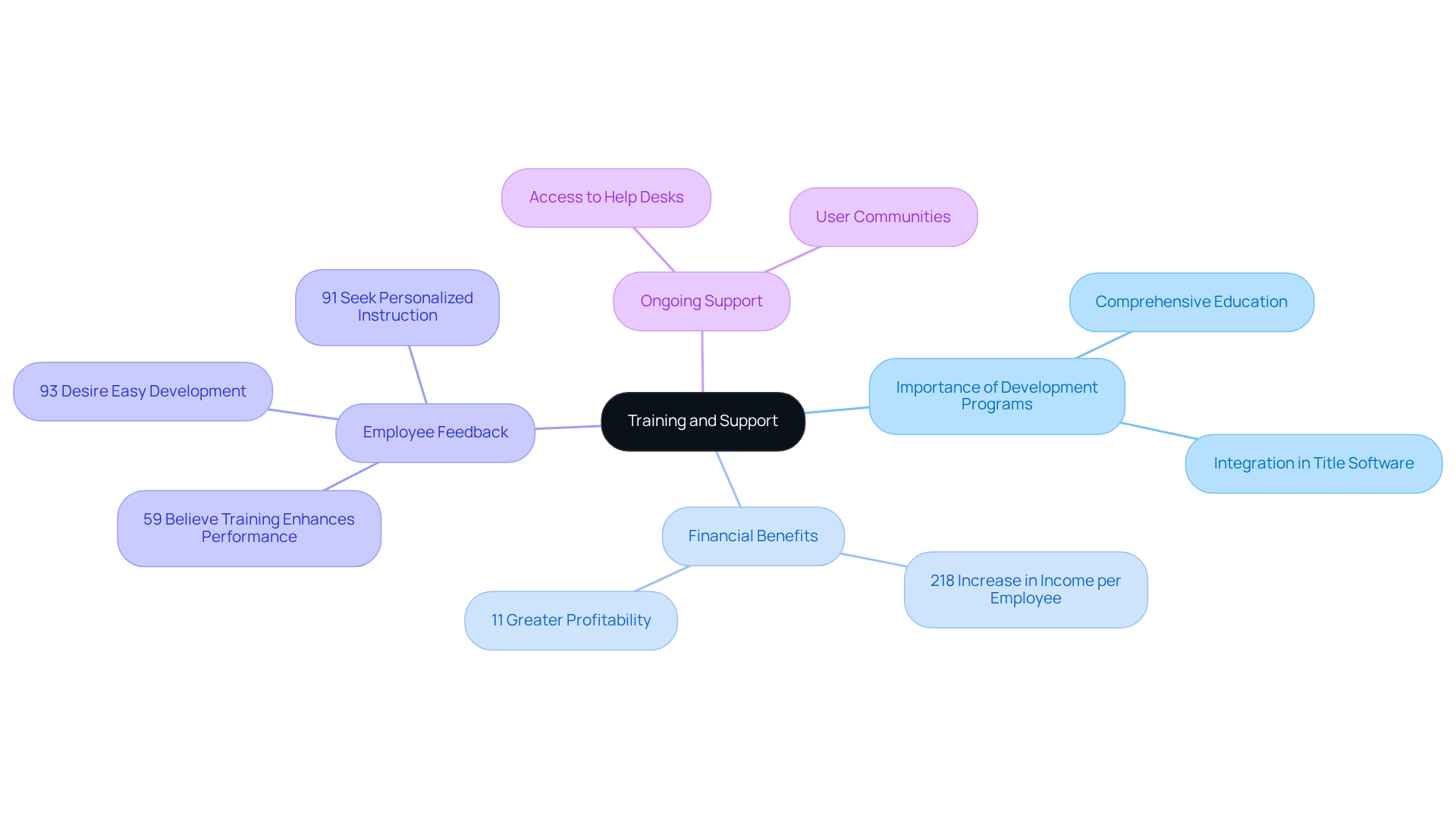
Conclusion
The integration of advanced technologies in title software represents a fundamental shift that significantly enhances operational efficiency and collaboration across the real estate industry. By leveraging tools such as Parse AI and other integrated systems, professionals can streamline workflows, reduce errors, and ultimately focus on delivering exceptional service to clients. The importance of these integrations cannot be overstated; they establish the groundwork for a more productive and responsive business environment.
Key benefits such as:
- Enhanced data sharing
- User-friendly interfaces
- Real-time updates
- Robust security measures
have been highlighted throughout this discussion. Collectively, these elements contribute to improved compliance, customizable workflows, and actionable insights through analytics and reporting. Each benefit reinforces the notion that integration is essential for maintaining competitiveness in a rapidly evolving market, where efficiency and accuracy are paramount.
As the real estate sector continues to embrace these integrated solutions, it is crucial for professionals to prioritize training and support to maximize the advantages offered by title software. By investing in comprehensive development programs, organizations can empower their teams to fully harness the potential of these technologies, driving not only individual performance but also overall organizational success. The future of title software integration is bright, and those who adapt will undoubtedly thrive in this dynamic landscape.
Frequently Asked Questions
What is Parse AI and how does it assist in title research?
Parse AI is a technology that utilizes advanced machine learning algorithms to analyze and extract relevant data from large document collections, significantly reducing the time needed for ownership research and allowing professionals to focus on strategic tasks.
How does Parse AI improve accuracy in report generation?
By automating the data extraction process, Parse AI mitigates human error, which enhances the accuracy of the reports generated.
Why is enhanced data sharing important in the real estate sector?
Enhanced data sharing improves collaboration between agents, lenders, and title firms by enabling smooth data exchange, minimizing miscommunication, and allowing for quicker, more informed decisions.
What role do AI chatbots play in real estate?
AI chatbots can enhance lead generation in real estate by 33%, showcasing the benefits of integrating advanced technologies into the sector.
What trends are emerging in the adoption of AI technologies in real estate?
According to the 2024 New Delta Media Survey, 75% of leading U.S. brokerages have adopted AI technologies, indicating a growing trend towards advanced technologies that enhance collaboration and operational efficiency.
How does integration in title software contribute to productivity?
Integrated systems foster a culture of collaboration, leading to better outcomes and enhanced overall productivity among all stakeholders involved in real estate transactions.
What are the benefits of user-friendly interfaces in title software?
User-friendly interfaces simplify navigation, reduce the learning curve for new users, and enhance productivity by allowing quick access to essential tools and information.
How can a well-designed user interface impact conversion rates?
A strategically designed user interface can boost conversion rates by up to 200%, highlighting the importance of investing in user-centric design.
What is the projected growth of the AI real estate market?
The AI real estate market is expected to reach USD 41.5 billion by 2033, emphasizing the importance of integration in title software for driving efficiency and effectiveness.




